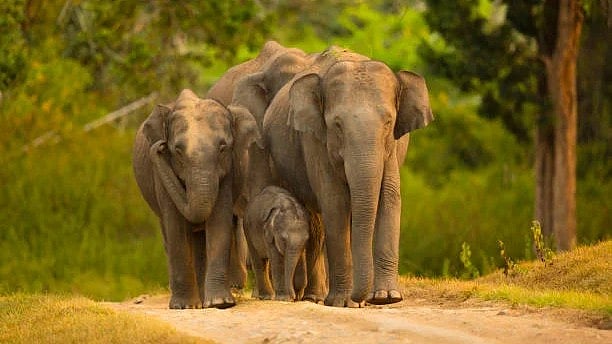
Representative image of Asian elephants.
Credit: iStock Photo
Mumbai: Asian elephant population from India and Sri Lanka are facing a habitat gridlock because of climate and land-use changes which are shifting elephant habitats eastward, but with limited connectivity escalating human-elephant conflicts, says a report of the Convention on the Conservation of Migratory Species of Wild Animals (CMS).
Warming, extreme weather events, and shifting water systems are affecting migratory species across the board, altering ranges, shrinking habitats, and threatening ecosystem service delivery, said the CMS report, which details how climate change disruption is affecting migratory species across the board.
Cold-adapted wildlife such as musk deer, pheasants, and snow trout are being pushed upslope into smaller, fragmented refugia, with some small mammals projected to lose over 50% of their range, according to a press statement.
The CMS workshop’s report reveals how migratory species serve as critical links in the ecosystems that sustain human life. From forest elephants that contribute to carbon storage capacity in jungles, to whales that transport essential nutrients across ocean basins, migratory species are vital in maintaining healthy ecosystems that are resilient and contribute to climate change mitigation.
But because such species rely on habitats that span continents and seasons, environmental changes in one region can trigger cascading effects thousands of miles away, underscoring the global nature of conservation challenges.
“Migratory animals are the planet’s early‐warning system and they are in trouble,” said Amy Fraenkel, CMS Executive Secretary.
“From monarch butterflies vanishing from our gardens to whales veering off course in warming seas, these travellers are sending us a clear signal. Climate change is having impacts now, and without urgent action, the survival of such species is in jeopardy,” she added.
“The world’s migratory species face increasingly formidable challenges from habitat deterioration and overexploitation. Climate change compounds these problems, with greater extremes in weather affecting habitats and food resources, ecosystem services such as carbon capture, and the ranges migratory species occupy,” said
Dr Des Thompson, CMS COP‐appointed Scientific Councillor for Climate Change.